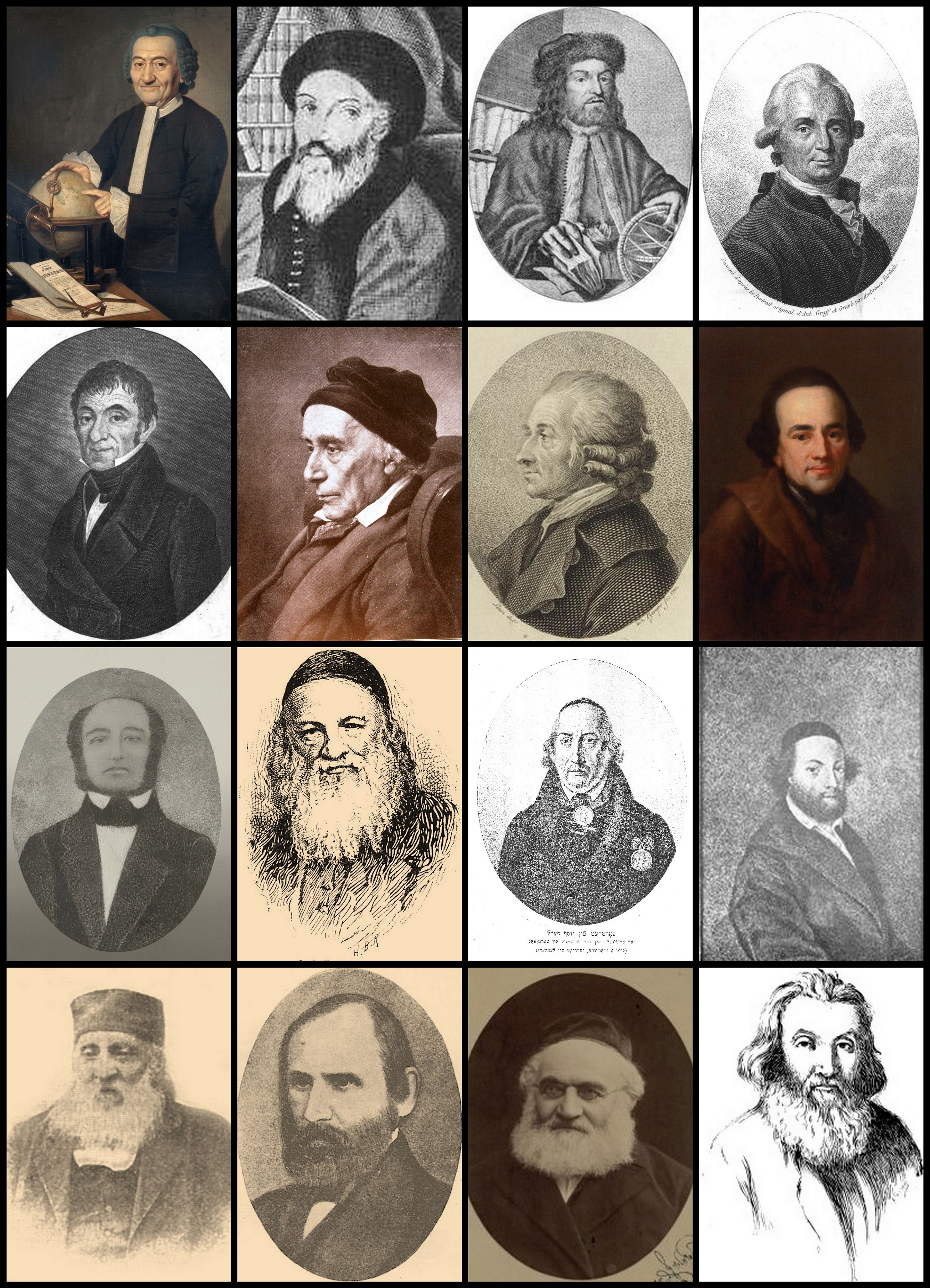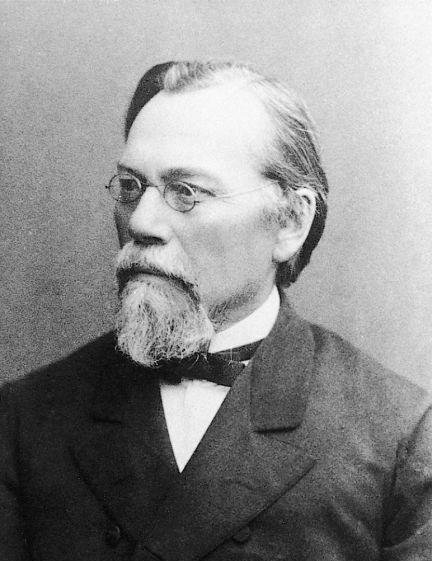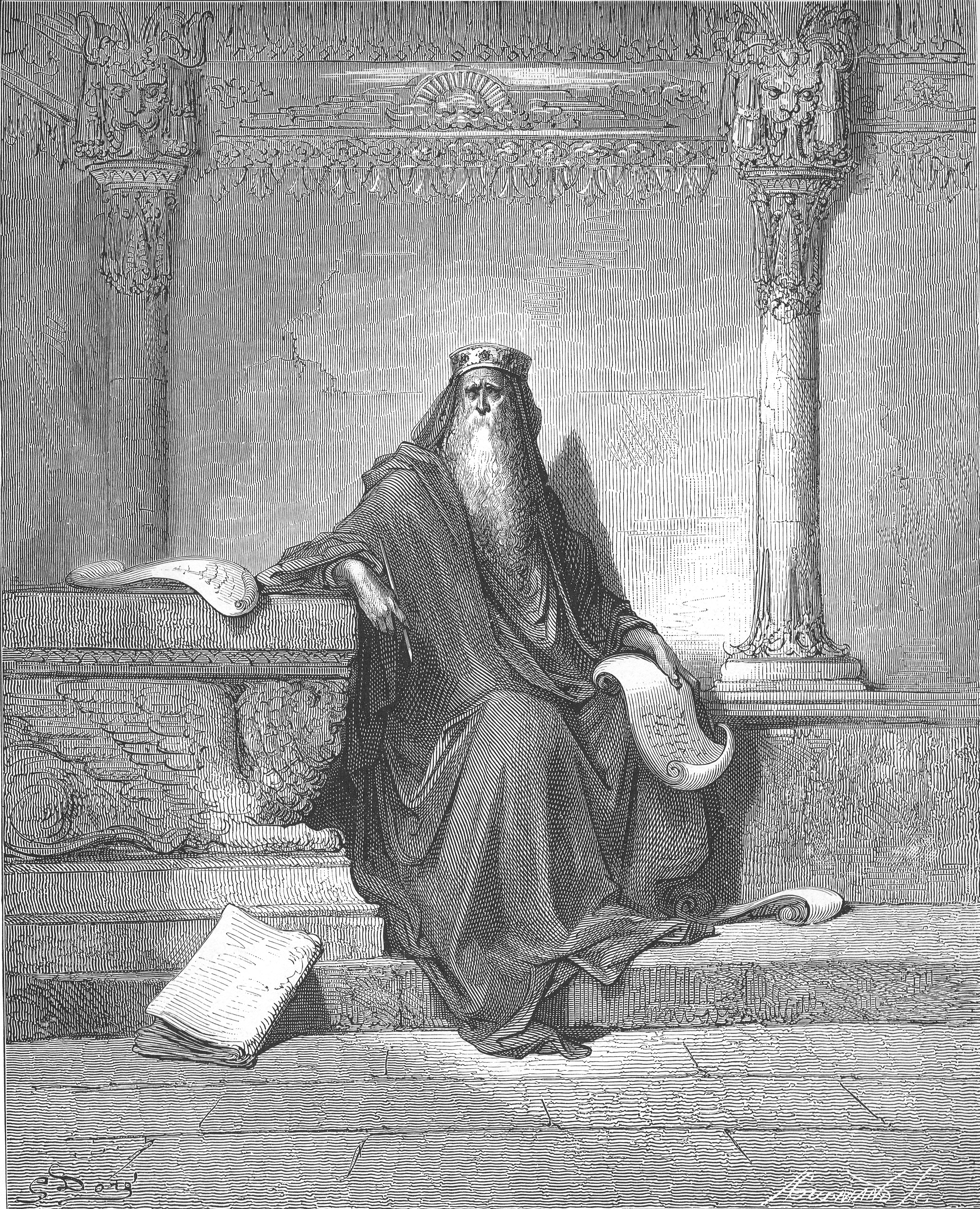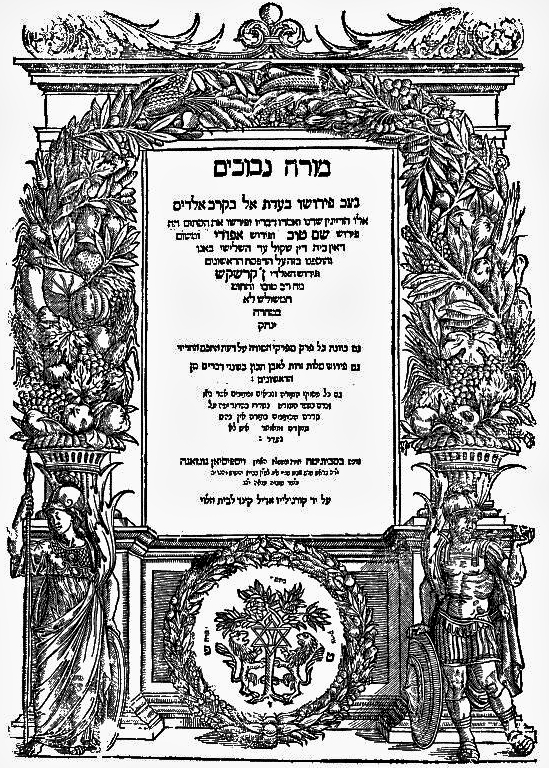|
Menachem Mendel Lefin
Menachem Mendel Lefin (also Menahem Mendel Levin) (1749–1826) was an early leader of the Haskalah movement. Biography He was born in Sataniv, Podolia, where he had a traditional Jewish education supplemented by studies in science, mathematics, and medieval philosophy. In the early 1780s he lived in Berlin, where he met Moses Mendelssohn and other Haskalah leaders. He was later introduced to Prince Adam Kazimierz Czartoryski, and became a tutor to Czartoryski's children in Podolia. He spent most of his life living in Galicia, and had great influence on Nachman Krochmal and Joseph Perl. He is widely regarded as the "father of the Galician Haskalah." He campaigned in favor of adding general education to the standard curriculum in Jewish schools, and he was a fierce opponent of Hasidic Judaism and Kabbalah, which he viewed as "nonsense." In 1791, he published a French-language pamphlet advocating for Jewish reform, criticizing the Hasidic movement for opposing integration. Among ... [...More Info...] [...Related Items...] OR: [Wikipedia] [Google] [Baidu] |
Haskalah
The ''Haskalah'' (; literally, "wisdom", "erudition" or "education"), often termed the Jewish Enlightenment, was an intellectual movement among the Jews of Central Europe, Central and Eastern Europe, with a certain influence on those in Western Europe and the Muslim world. It arose as a defined ideological worldview during the 1770s, and its last stage ended around 1881, with the rise of Autoemancipation, Jewish nationalism. The movement advocated against Jewish reclusiveness, encouraged the adoption of prevalent attire over traditional dress, while also working to diminish the authority of traditional community institutions such as rabbinic courts and boards of elders. It pursued a set of projects of cultural and moral renewal, including a revival of Hebrew for use in secular life, which resulted in an increase in Hebrew language, Hebrew found in print. Concurrently, it strove for an optimal integration in surrounding societies. Practitioners promoted the study of Exogeny, exo ... [...More Info...] [...Related Items...] OR: [Wikipedia] [Google] [Baidu] |
Maimonides
Moses ben Maimon (1138–1204), commonly known as Maimonides (, ) and also referred to by the Hebrew acronym Rambam (), was a Sephardic rabbi and Jewish philosophy, philosopher who became one of the most prolific and influential Torah scholars of the Middle Ages. In his time, he was also a preeminent astronomer and physician, serving as the personal physician of Saladin. He was born on Passover eve 1138 or 1135, and lived in Córdoba, Spain, Córdoba in al-Andalus (now in Spain) within the Almoravid dynasty, Almoravid Empire until his family was expelled for refusing to convert to Islam. Later, he lived in Morocco and Egypt and worked as a rabbi, physician and philosopher. During his lifetime, most Jews greeted Maimonides' writings on Halakha, Jewish law and Jewish ethics, ethics with acclaim and gratitude, even as far away as Iraq and Yemen. Yet, while Maimonides rose to become the revered head of the History of the Jews in Egypt, Jewish community in Egypt, his writings also ... [...More Info...] [...Related Items...] OR: [Wikipedia] [Google] [Baidu] |
People From Podolia Voivodeship
The term "the people" refers to the public or common mass of people of a polity. As such it is a concept of human rights law, international law as well as constitutional law, particularly used for claims of popular sovereignty. In contrast, a people is any plurality of persons considered as a whole. Used in politics and law, the term "a people" refers to the collective or community of an ethnic group or nation. Concepts Legal Chapter One, Article One of the Charter of the United Nations states that "peoples" have the right to self-determination. Though the mere status as peoples and the right to self-determination, as for example in the case of Indigenous peoples (''peoples'', as in all groups of indigenous people, not merely all indigenous persons as in ''indigenous people''), does not automatically provide for independent sovereignty and therefore secession. Indeed, judge Ivor Jennings identified the inherent problems in the right of "peoples" to self-determination, as i ... [...More Info...] [...Related Items...] OR: [Wikipedia] [Google] [Baidu] |
18th-century Polish Jews
The 18th century lasted from 1 January 1701 (represented by the Roman numerals MDCCI) to 31 December 1800 (MDCCC). During the 18th century, elements of Enlightenment thinking culminated in the Atlantic Revolutions. Revolutions began to challenge the legitimacy of monarchical and aristocratic power structures. The Industrial Revolution began mid-century, leading to radical changes in human society and the environment. The European colonization of the Americas and other parts of the world intensified and associated mass migrations of people grew in size as part of the Age of Sail. During the century, slave trading expanded across the shores of the Atlantic Ocean, while declining in Russia and China. Western historians have occasionally defined the 18th century otherwise for the purposes of their work. For example, the "short" 18th century may be defined as 1715–1789, denoting the period of time between the death of Louis XIV of France and the start of the French Revolution ... [...More Info...] [...Related Items...] OR: [Wikipedia] [Google] [Baidu] |
People From Khmelnytskyi Oblast
The term "the people" refers to the public or common mass of people of a polity. As such it is a concept of human rights law, international law as well as constitutional law, particularly used for claims of popular sovereignty. In contrast, a people is any plurality of persons considered as a whole. Used in politics and law, the term "a people" refers to the collective or community of an ethnic group or nation. Concepts Legal Chapter One, Article One of the Charter of the United Nations states that "peoples" have the right to self-determination. Though the mere status as peoples and the right to self-determination, as for example in the case of Indigenous peoples (''peoples'', as in all groups of indigenous people, not merely all indigenous persons as in ''indigenous people''), does not automatically provide for independent sovereignty and therefore secession. Indeed, judge Ivor Jennings identified the inherent problems in the right of "peoples" to self-determination, ... [...More Info...] [...Related Items...] OR: [Wikipedia] [Google] [Baidu] |
Hebrew-language Writers
Hebrew (; ''ʿÎbrit'') is a Northwest Semitic languages, Northwest Semitic language within the Afroasiatic languages, Afroasiatic language family. A regional dialect of the Canaanite languages, it was natively spoken by the Israelites and remained in regular use as a first language until after 200 CE and as the Sacred language, liturgical language of Judaism (since the Second Temple period) and Samaritanism. The language was Revival of the Hebrew language, revived as a spoken language in the 19th century, and is the only successful large-scale example of Language revitalization, linguistic revival. It is the only Canaanite language, as well as one of only two Northwest Semitic languages, with the other being Aramaic, still spoken today. The earliest examples of written Paleo-Hebrew alphabet, Paleo-Hebrew date back to the 10th century BCE. Nearly all of the Hebrew Bible is written in Biblical Hebrew, with much of its present form in the dialect that scholars believe flourish ... [...More Info...] [...Related Items...] OR: [Wikipedia] [Google] [Baidu] |
1826 Deaths
Events January–March * January 15 – The French newspaper ''Le Figaro'' begins publication in Paris, initially as a satirical weekly. * January 17 – The John Ballantyne (publisher), Ballantyne printing business in Edinburgh (Scotland) crashes, ruining novelist Sir Walter Scott as a principal investor. He undertakes to repay his creditors from his writings. His publisher, Archibald Constable, also fails. * January 18 – In India, the Siege of Bharatpur (1825–1826), Siege of Bharatpur ends in British victory as Stapleton Cotton, 1st Viscount Combermere, Lord Combermere and Michael Childers defeat the Bharatpur State, princely state of Bharatpur, now part of the Indian state of Rajasthan. * January 30 – The Menai Suspension Bridge, built by engineer Thomas Telford as the first major suspension bridge in world history, is opened between the island of Anglesey and the mainland of Wales. * February 6 – James Fenimore Cooper's novel ''The Last of the Mohicans'' is ... [...More Info...] [...Related Items...] OR: [Wikipedia] [Google] [Baidu] |
1749 Births
Events January–March * January 3 ** Benning Wentworth issues the first of the New Hampshire Grants, leading to the establishment of Vermont. ** The first issue of '' Berlingske'', Denmark's oldest continually operating newspaper, is published. * January 21 – The Teatro Filarmonico, the main opera theater in Verona, Italy, is destroyed by fire. It is rebuilt in 1754. * February – The second part of John Cleland's erotic novel ''Fanny Hill'' (''Memoirs of a Woman of Pleasure'') is published in London. The author is released from debtors' prison in March. * February 28 – Henry Fielding's comic novel ''The History of Tom Jones, a Foundling'' is published in London. Also this year, Fielding becomes magistrate at Bow Street, and first enlists the help of the Bow Street Runners, an early police force (eight men at first). * March 6 – A "corpse riot" breaks out in Glasgow after a body disappears from a churchyard in the Gorbals district. Suspicio ... [...More Info...] [...Related Items...] OR: [Wikipedia] [Google] [Baidu] |
Ecclesiastes
Ecclesiastes ( ) is one of the Ketuvim ('Writings') of the Hebrew Bible and part of the Wisdom literature of the Christian Old Testament. The title commonly used in English is a Latin transliteration of the Greek translation of the Hebrew word ( or ). An unnamed author introduces "The words of Kohelet, son of David, king in Jerusalem" (Ecclesiastes 1:1, 1:1) and does not use his own voice again until the final verses (12:9–14), where he gives his own thoughts and summarises the statements of Kohelet; the main body of the text is ascribed to Kohelet. Kohelet proclaims (1:2) "Vanity of vanities! All is futile!" The Hebrew word , 'vapor' or 'breath', can figuratively mean 'insubstantial', 'vain', 'futile', or 'meaningless'. In some versions, vanity is translated as 'meaningless' to avoid the confusion with the other definition of vanity. Given this, the next verse presents the basic existential question with which the rest of the book is concerned: "What profit can we show for a ... [...More Info...] [...Related Items...] OR: [Wikipedia] [Google] [Baidu] |
Yiddish
Yiddish, historically Judeo-German, is a West Germanic language historically spoken by Ashkenazi Jews. It originated in 9th-century Central Europe, and provided the nascent Ashkenazi community with a vernacular based on High German fused with many elements taken from Hebrew language, Hebrew (notably Mishnaic Hebrew, Mishnaic) and to some extent Aramaic. Most varieties of Yiddish include elements of Slavic languages and the vocabulary contains traces of Romance languages.Aram Yardumian"A Tale of Two Hypotheses: Genetics and the Ethnogenesis of Ashkenazi Jewry".University of Pennsylvania. 2013. Yiddish has traditionally been written using the Hebrew alphabet. Prior to World War II, there were 11–13 million speakers. 85% of the approximately 6 million Jews who were murdered in the Holocaust were Yiddish speakers,Solomon Birnbaum, ''Grammatik der jiddischen Sprache'' (4., erg. Aufl., Hamburg: Buske, 1984), p. 3. leading to a massive decline in the use of the language. Jewish ass ... [...More Info...] [...Related Items...] OR: [Wikipedia] [Google] [Baidu] |
Mishnaic Hebrew
Mishnaic Hebrew () is the Hebrew language used in Talmudic texts. Mishnaic Hebrew can be sub-divided into Mishnaic Hebrew proper (c. 1–200 CE, also called Tannaim, Tannaitic Hebrew, Early Rabbinic Hebrew, or Mishnah, Mishnaic Hebrew I), which was a spoken language, and Amoraim, Amoraic Hebrew (c. 200 to 500 CE, also called Late Rabbinic Hebrew or Mishnaic Hebrew II), which was a literary language only. The Mishnaic Hebrew language, or Early Rabbinic Hebrew language, is one of the direct ancient descendants of Biblical Hebrew as preserved after the Babylonian captivity, and definitively recorded by Jewish sages in writing the Mishnah and other contemporary documents. A transitional form of the language occurs in the other works of Tannaitic literature dating from the century beginning with the completion of the Mishnah. These include the midrash halakha, halakhic midrashim (''Sifra'', ''Sifre'', ''Mekhilta of Rabbi Ishmael'', etc.) and the expanded collection of Mishnah-related ... [...More Info...] [...Related Items...] OR: [Wikipedia] [Google] [Baidu] |
The Guide For The Perplexed
''The Guide for the Perplexed'' (; ; ) is a work of Jewish theology by Maimonides. It seeks to reconcile Aristotelianism with Rabbinical Jewish theology by finding rational explanations for many events in the text. It was written in Judeo-Arabic dialects, Judeo-Arabic, a dialect of Classical Arabic using the Hebrew alphabet. It was sent originally, part after part, to his student, Rabbi Joseph ben Judah of Ceuta, the son of Rabbi Judah, and is the main source of Maimonides' philosophical views, as opposed to his opinions on Halakha, Jewish law. Since many of the philosophical concepts, such as his view of theodicy and the relationship between philosophy and religion, are relevant beyond Judaism, it has been the work most commonly associated with Maimonides in the non-Jewish world and it is known to have influenced several major non-Jewish philosophers. Following its publication, "almost every philosophic work for the remainder of the Middle Ages cited, commented on, or criticized ... [...More Info...] [...Related Items...] OR: [Wikipedia] [Google] [Baidu] |







